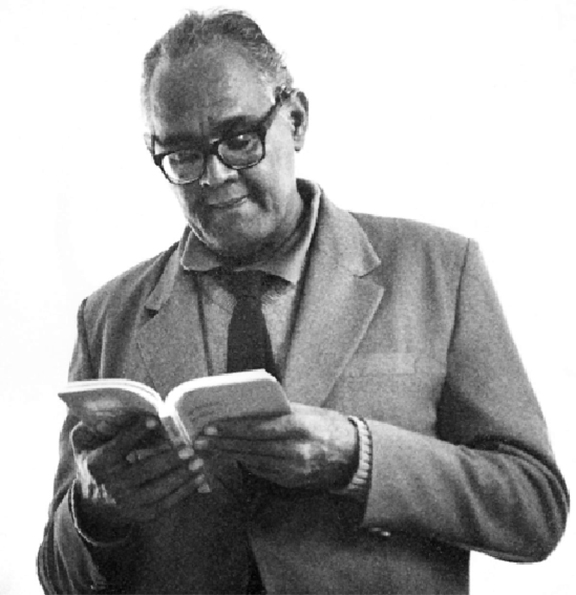“When the people began to display their young vigour, Carter turned his attention to nurturing the forces of the radiant future.” So heralds Sydney King in his introduction to the London edition of Poems of Resistance from British Guiana published by the left-wing publishers, Lawrence and Wishart in 1954. Reading Martin Carter’s work as a direct expression of the mood and experiences of anti-colonialism in Guyana, King (now Eusi Kwayana), hoped that this poetry could be part of “sustaining the people in their struggle.” Although the collection ran to three editions between 1954 and 1978, you will be very lucky to see a copy of Poems of Resistance nowadays. A second-hand copy of the 1954 edition is rare and recent UK and US bookseller prices range from G$17,740 to G$33,940. While the poems from this collection have been reprinted in new Carter collections and anthologies over the years, on the 60th anniversary of the publication of this short incendiary collection of 18 poems, we should ask how well do we know this major landmark in Guyanese literary history.
In the preface to the 1964 second edition of the collection (abbreviated to Poems of Resistance) Neville Dawes wrote “the poems collected here may be regarded in one way as a single poem of resistance to the special oppression of 1953, one eloquent refusal to be dehumanised by imperialist bayonets and colonial prisons.” It is this collection that contains some of Carter’s most famous poems, ‘University of Hunger’, ‘This is the Dark Time My Love’ and ‘I Come from the Nigger Yard’. Certainly the London edition was explicitly linked to the political events at the time; at the end of the collection a letter was addressed to the ‘Reader’, informing him or her that “the author of these poems and four other members of the People’s Progressive Party in British Guiana were arrested and kept under detention for over two months without charges being instituted against them and without being brought to trial for any offence alleged to have been committed by them.” Donations were requested for the “Guiana Defence Fund” in order to establish legal representation for the men. The collection of poems becomes a medium for disseminating news of the political events in the colony, and for raising money. Although the anti-colonial goals of the PPP are not mentioned explicitly in this letter, Carter’s imprisonment is proof that Carter, the poet, and Carter, the political activist, share the same task: to offer resistance from British Guiana.
Lawrence and Wishart were clearly interested in the political situation in Guyana. Carter joined a publishing list that already included Cheddi Jagan’s Forbidden Freedom. When the collection was advertised in the 1954 catalogue, the publishers closed the gap further between the poems and the political events: “Martin Carter, the foremost poet of the Caribbean people, is a true people’s leader. A Minister in the democratically elected government of British Guiana, he was

